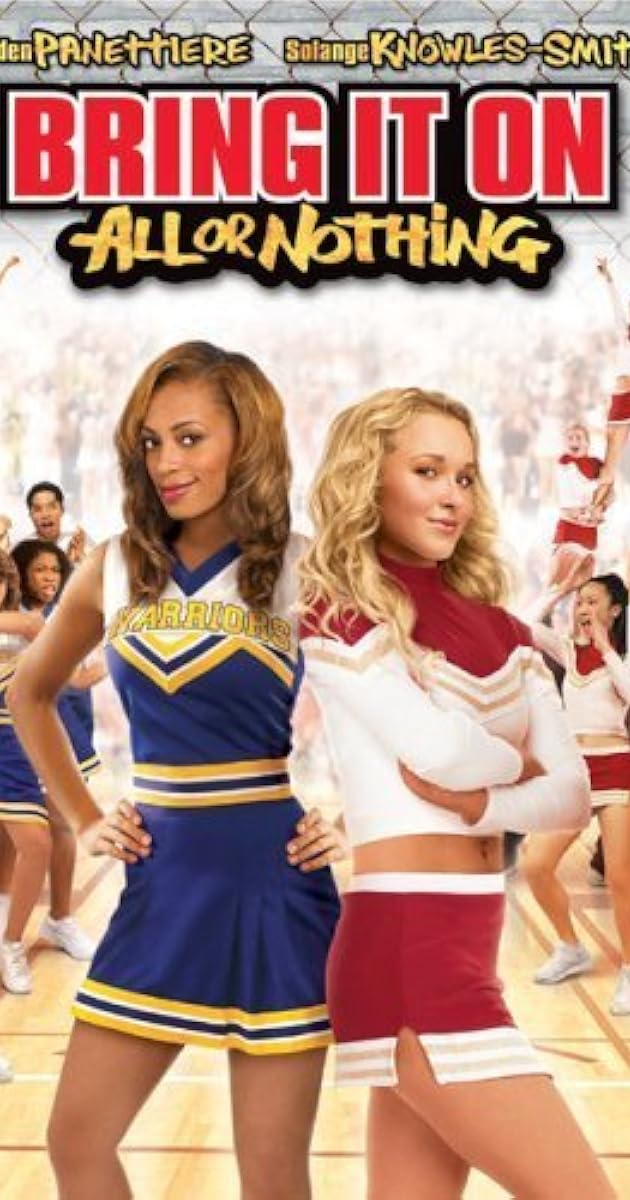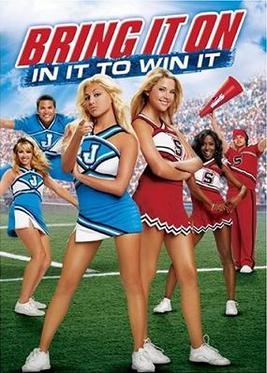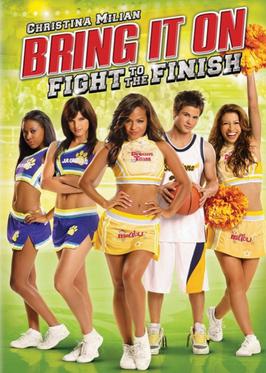Dear Mitch McConnell,— Judge Roy Moore (@MooreSenate) November 16, 2017
Bring. It. On.
Wikipedia:
Bring It On is a 2000 American teen comedy film directed by Peyton Reed and written by Jessica Bendinger. The film stars Kirsten Dunst, Eliza Dushku, Jesse Bradford, and Gabrielle Union. It was the first of the Bring It On film series and was followed by five direct-to-video sequels, none of which contain any of the original cast members: Bring It On Again (2004), which shared producers with the original, Bring It On: All or Nothing (2006), Bring It On: In It to Win It (2007), Bring It On: Fight to the Finish (2009) and Bring It On: Worldwide #Cheersmack (2017). The plot of the film centers around a team's preparation for and participation in cheerleading competitions.
Bring It On was released in theaters in the North America on August 25, 2000. The film received mostly positive reviews, with some critics praising its light nature and humorous take on its subject, and others criticizing its conventional and formulaic plot. Bring It On earned a worldwide gross of approximately $90 million, and was considered a financial success. Since its release, the film has become a cult classic...
Bring It On was produced by Marc Abraham and Thomas Bliss. It was the debut film of director Peyton Reed. His major concern with the film was pushing the sexual aspects of cheerleading without losing a PG-13 rating. Roger Ebert from the Chicago Sun-Times argued that this agenda followed a trend of films at the time that watered down material in order to avoid an R rating and increase box office gross...
The film received a 63% rating on Rotten Tomatoes, based on a total of 117 compiled reviews; the site's consensus reads: "Despite the formulaic, fluffy storyline, this movie is surprisingly fun to watch, mostly due to its high energy and how it humorously spoofs cheerleading instead of taking itself too seriously."In comparison, Metacritic, which assigns a normalized rating out of 100 to reviews from mainstream critics, gave the film an average score of 52 based on 31 reviews, indicating "Mixed or average reviews".
A. O. Scott from The New York Times commended the film for being able to "gesture toward serious matters of race and economic inequality", as well as for its "occasional snarl of genuine satire". Kevin Thomas of The Los Angeles Times also favored the film, calling it a "Smart and sassy high school movie that's fun for all ages." Steven Rae from The Philadelphia Inquirer found it to be a "likable, low-budget high school comedy". Meanwhile, Kim Morgan of The Oregonian dubbed it the "newest, and probably first, true cheerleading movie."
However, some reviewers criticized the plot of the film. Although David Sterritt of The Christian Science Monitor gave praise for the writing, he likened the storyline's simplicity to that of "the average football cheer". Kim Edwards from the Chicago Tribune, in a negative review, found the film "Absurdly unrealistic at times." The Seattle Post-Intelligencer's Paula Nechak concluded that the film was "predictable and surprisingly confusing in its ultimate message.
Many critics reserved praise for Kirsten Dunst's performance. In his review, A. O. Scott called her "a terrific comic actress, largely because of her great expressive range, and the nimbleness with which she can shift from anxiety to aggression to genuine hurt." Charles Taylor of Salon noted that "among contemporary teenage actresses, Dunst has become the sunniest imaginable parodist." Jessica Winter from The Village Voice shared this sentiment, commenting that "[Dunst] provides the only major element of Bring It On that plays as tweaking parody rather than slick, strident, body-slam churlishness." Peter Stack of the San Francisco Chronicle, despite giving the film an unfavorable review, commended Dunst for her willingness "to be as silly and cloyingly agreeable as it takes to get through a slapdash film."
Cultural historian Maud Lavin says that despite Bring It On's predictable plot, its depiction of aggressive and competitive women, the differences shown between class and race, and the playful way it deals with homophobia gives it deeper cultural clout and meaning. In particular, Lavin says that the film suggests race relations could be "smoothed and transcended through level-playing-field sports competitiveness."
...A stage version of the film premiered at the Alliance Theatre, Atlanta, Georgia on January 16, 2011. The musical has music by Lin-Manuel Miranda and Tom Kitt, lyrics by Amanda Green, and a book by Jeff Whitty.






No comments:
Post a Comment